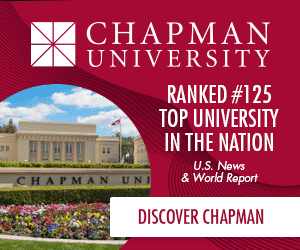Some notes for all of us to keep in mind as Covid-19 keeps its grip and the dog days of summer settle upon us:
We have more going for us than we realize at this moment.
That much can be gathered from FivePoint Holdings LLC’s donation of 1 million face masks to the City of Irvine for distribution to medical personnel, first responders and others in need amid the pandemic.
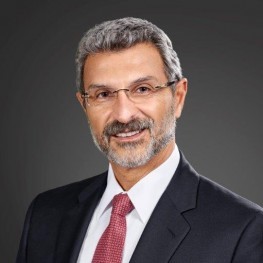
FivePoint is the community builder behind the Great Park Neighborhoods and FivePoint Gateway in Irvine, as well as the 15,000-acre FivePoint Valencia community that’s now rising in the Santa Clarita Valley in northern LA County.
FivePoint Chief Executive Emile Haddad found a way to exert the company’s will in the early crush of the pandemic, procuring and donating 100,000 masks in March, when supplies were pinched by the initial surprise of Covid-19’s spread.
Haddad characterized the company’s more recent donation of 1 million more masks as another illustration that “FivePoint will continue to do as much as we can to help this community be prepared for what lies ahead.”
Worth noting and emulating—in spirit if not necessarily at scale.
We are sharper than we realize.
Consider recent local efforts by The Forward, which has sharpened its sense of SoCal since Rob Eshman signed on as a national editor and LA columnist for the NY-based chronicler of the Jewish community in America.
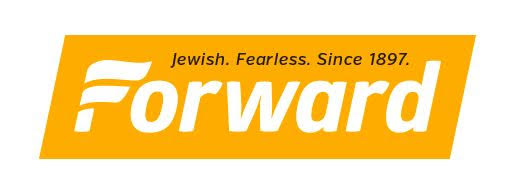
You can find an example in Louis Keene’s sharp piece that takes a critical look at how the legal concept behind gang injunctions was born in what was once a Jewish neighborhood called Cadillac-Corning, where the Fairfax District gets close to the Santa Monica Freeway.
Lots of media outlets and public agencies have been citing systemic racism as a factor of everyday life in SoCal and the rest of the U.S. lately. Give Keene and The Forward credit for presenting a concrete example. The piece examines the cause and effects of the original gang injunction to give readers a look at—and an explanation of—what could be viewed as a building block of systemic racism against Blacks.
A slight knock on the piece for carrying what came off to me as the unnecessary weight of an ideological perspective.
Greater kudos for backing up the broad claim of systemic racism with an example that merits serious consideration of its own—and also opens the mind to other aspects of our various systems in need of review.
We are more diverse—in thought as well as demography—than we know.
It was a few months ago that this column highlighted an open letter to America written by Byron Allen, who put his money where his mouth was by paying to run his call for racial reckoning as a two-page ad in the Wall Street Journal.
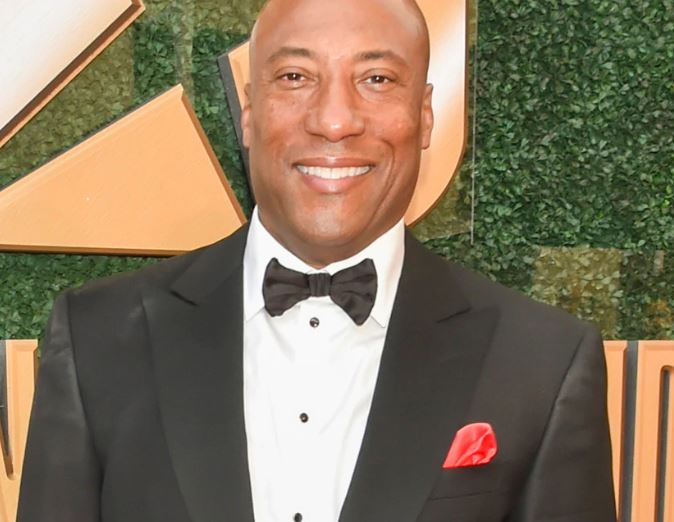
If that didn’t make it clear that the standup comic-turned-budding media mogul believes in diversity of thought as much as the demographic aspects of the concept, then you should consider some remarks he made during the Los Angeles Business Journal’s webinar titled Black Business Matters—From Awareness to Action, held on July 29.
Allen gave this answer to an attendee who wanted his advice about going into business in Black neighborhoods that are generally underserved by commercial enterprises.
I would say don’t do it, be careful, don’t go where there isn’t any money. I have purposely made it a point not to play in what I call the Negro Leagues. I go after businesses that are global businesses. I go after the same businesses my white counterparts go after. That’s unique about me—I’m one of the first to buy businesses traditionally owned by white people, because I made a decision that I’m not going to play in the Negro Leagues—not enough money there. I’m chasing billions, and the first order of business [is to] position yourself to succeed … So go where the money is … One of the biggest mistakes we make as entrepreneurs [is] sometimes we start in places where it’s just too small, and there’s not enough money to go around—and even well-known franchises can’t make it in those neighborhoods. If you see a McDonald’s dying in that neighborhood, keep on driving.
Some readers might recoil from Allen’s reference to the Negro Leagues, which could sound somewhere between outdated and offensive.
It’s worth pointing out that there were several organizations made up of Black baseball players who were forbidden to play in what’s known as Major League Baseball until 1947. The organizations are together generally referred to as the Negro Leagues—and the term “negro” was considered polite in White society at the time.
We have more ways to understand one another than appearances suggest.
I’ll share a bit of personal context that gives me an unusual point of reference on Allen’s choice of terms: My grandfather, Lefty Sullivan, was a professional baseball player who was banned from Major League Baseball for refusing to submit to what was known as the “reserve clause,” which allowed team owners to control players’ careers by prohibiting free agency until the 1970s. My grandfather continued to make a living by playing in various upstart, informal and regional leagues from the 1920s through the Great Depression, and often competed in exhibition games against teams made up of players from the Negro Leagues.
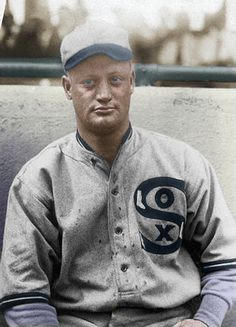
My father saw many of the games—he once got to catch for Satchel Paige in pre-game warmups—and any baseball fan should Google that name if it doesn’t ring a bell. My father’s eyewitness accounts were passed on to me, with testimony that the talent of the players in the Negro Leagues was generally as good as—and in some cases better than—their counterparts in Major League Baseball.
The Negro Leagues were, however, limited by both legal and informal segregation, meaning smaller potential markets and earnings for all involved. I can’t know Allen’s heart and mind, but I believe he was addressing the quality of the talent and the injustice of the limited opportunities for the Negro Leagues and its players when he used them as an example in his remarks.
We are smarter than we seem.
SoCal is home to the sort of smarts that allows Dan Ivascyn—who oversees about $1.8 trillion in assets and 250 portfolio managers as chief investment officer of Newport Beach-based Pimco—to boil his outlook of the pandemic-stricken economy down to common sense in a way that a lot of Wall Street executives often miss.

Ivascyn’s latest update offered caution on the commercial real estate market. He told the Financial Times that a sustained pickup in the sector—which drives a significant chunk of SoCal’s economy—will require “some fundamental improvement in the economy.”
You won’t find that bit of common sense stated more succinctly on Wall Street or anywhere else.
We’re more capable of correcting ourselves than before.
Give the LA Times credit for progress in tending to its own ethics and also recognizing the culture of corruption in local government that’s been brought to light in an ongoing federal investigation of City Hall.
A story in the July 30 edition of the newspaper acknowledged that its owner, Patrick Soon-Shiong, is involved in President Donald Trump’s “Operation Warp Speed” project that aims to get a vaccine for Covid-19.
A July 31 story in the LA Times about last week’s indictment of 14th District LA City Councilmember Jose Huizar as part of a joint FBI-IRS corruption probe of LA City Hall acknowledged that the case leads to Mayor Eric Garcetti’s office.
Both acknowledgements had been missing from the LA Times coverage for months.
They weren’t missing as of last week—and that’s notable progress.
We’re tougher than we think we are.

How else to explain the latest leap by veteran OC journalist and constant friend of the underdog Paul Hughes, who has set sail in search of a new beginning amid the pandemic, earning a scholarship for full-tuition to Trinity Law School in Santa Ana?
Better, sharper, more diverse than we realize. More understanding, smarter, tougher than we think.
We have all of that going for us, yet the Los Angeles County Department of Public Health can’t answer this simple query about its communications on the local effects of Covid-19:
Why doesn’t the agency disclose in its news releases that it uses “age-adjusted” data for some of the assertions it makes in regard to ethnic and racial disparities in the effects of Covid-19?
That’s one of several basic questions about Covid-19 data that seem to have officials of the agency stumped.
Memo to the officials of the agency and elected officials in charge of its operations: The people can be trusted with whatever data you have. We have more going for us than you realize.
Sullivan Says
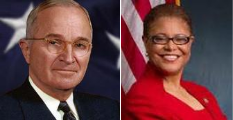
Harry Truman getting plucked as Franklin Roosevelt’s running mate in 1944 might be the most apt historical comparison should a longshot come through to give South LA-based U.S. Representative Karen Bass the nod as Joe Biden’s running mate.






